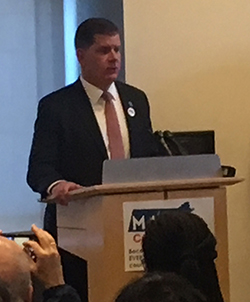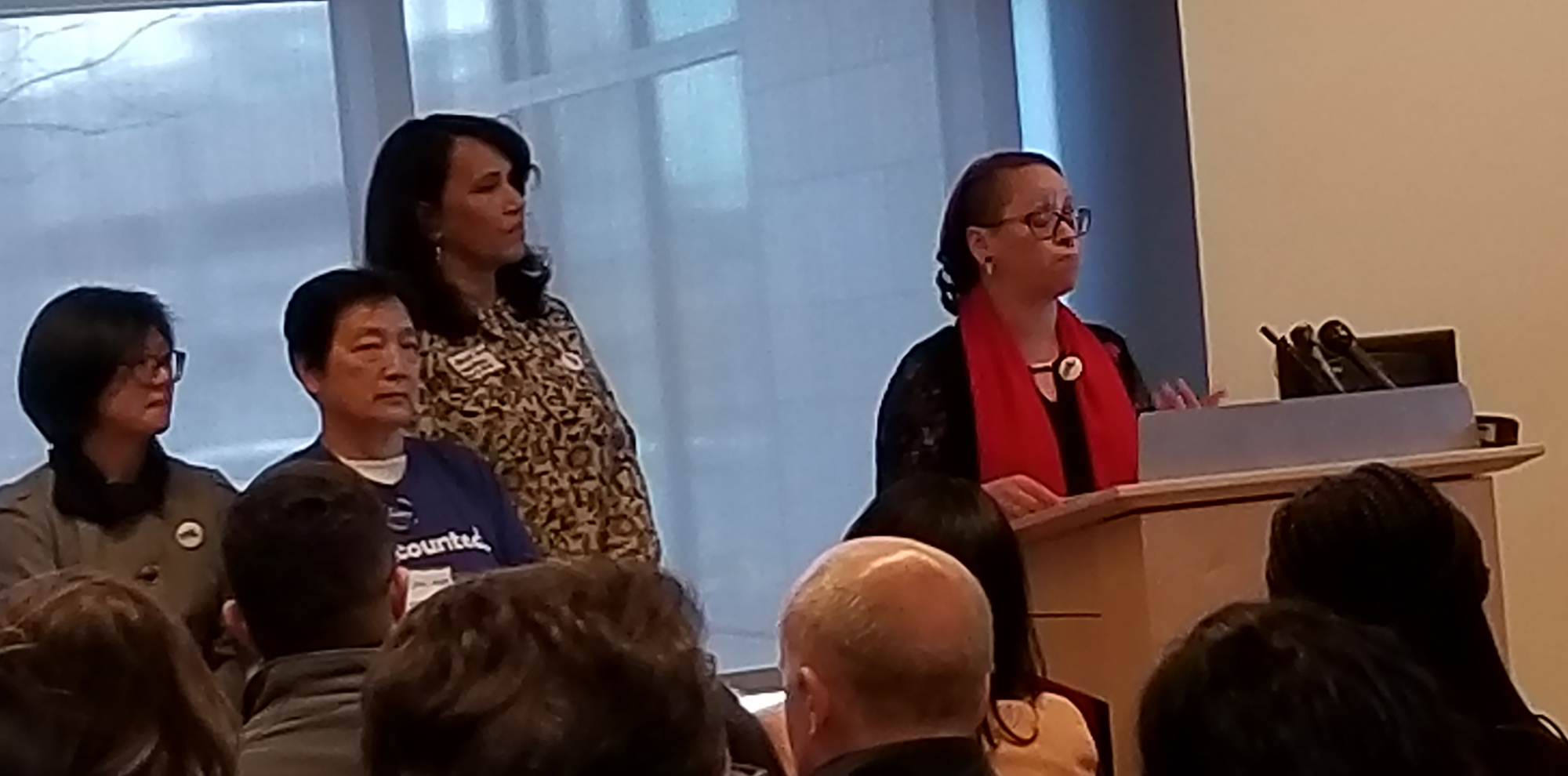On April 1, exactly one year before “Census Day 2020,” nonprofit and community leaders were joined by elected officials at the East Boston branch of the Boston Public Library for a 2020 Census Kick-Off Event. As many people are already turning their attention towards the 2020 Presidential Election, leaders in the City of Boston and across Massachusetts are mobilizing to make sure there is plenty of attention focused on the nation’s decennial count.
The Census 2020 Kick-Off highlighted the importance of the count as a chance for the city and the state to ensure an accurate and complete count.
Why is an accurate and complete count important to nonprofits, communities, and the Commonwealth? Census data:
- Provides a view of the changes in demographics
- Provides federal funding opportunities to states and municipalities that impact schools, affordable housing, infrastructure, healthcare, and others. Every person not counted equals $2,400 in lost federal money every year for the next ten years
- Determines congressional representation. Massachusetts stands to gain or lose a congressional seat based on the 2020 Census outcome.
 Among the kick-off speakers were Mimi Ramos, Executive Director, New England United for Justice; Alexie Torres, Chair, Massachusetts Census Equity Fund; Gladys Vega, Director, Chelsea Collaborative; and Boston Mayor Martin J. Walsh. All spoke about financial and other commitments to the count made by their offices, but their overarching theme was what is at stake in 2020.
Among the kick-off speakers were Mimi Ramos, Executive Director, New England United for Justice; Alexie Torres, Chair, Massachusetts Census Equity Fund; Gladys Vega, Director, Chelsea Collaborative; and Boston Mayor Martin J. Walsh. All spoke about financial and other commitments to the count made by their offices, but their overarching theme was what is at stake in 2020.
Every census is significant, but the 2020 Census is particularly important given three critical challenges to achieving an accurate and complete count:
- This will be the first ‘high-tech’ census, using a new online platform that could worsen the digital divide for those without access to reliable internet;
- The untested citizenship question heightens a climate of fear and threatens participation by many immigrant communities;
- The Census Bureau has significantly fewer resources for its field operation compared with 2010.
Massachusetts and the City of Boston are particularly vulnerable to the consequences of undercounting due to a large number of hard-to-count populations: college students, renters, single-family households, and recent immigrants. According to a recent report by the Boston Indicator’s Project, Boston is ninth hardest to count among the 100 largest cities in the US.
Given the inherent barriers to achieving an accurate and complete count in a normal census year, the risk of loss of funding and representation will be multiplied in 2020.
The nonprofit sector has an opportunity and responsibility to ensure that the hard-to-count-populations, who are often our partners and beneficiaries, are accounted and provided for. TSNE is committed to working for an accurate and complete count in 2020 and is calling out to all organizations, boards, and community groups to assess how they can support an accurate and complete count.
Update: The United States Supreme Court will begin hearings on the citizenship question on April 23.
Learn More and Get Involved
Census 2020 Resources
Census 2020, Explained: How It Works and What’s at Stake for Massachusetts (report)
Boston Indicators and Massachusetts Census Equity Fund
https://www.tbf.org/news-and-insights/newsletters/2018/december/census-2020-fall-2018
Achieving Racial Equity in the 2020 Census (sign up to get involved)
MA Voter Table — Census Outreach
http://mavotertable.org/2020-census-outreach
Boston Counts 2020
City of Boston
https://www.boston.gov/departments/intergovernmental-relations/boston-counts-2020
